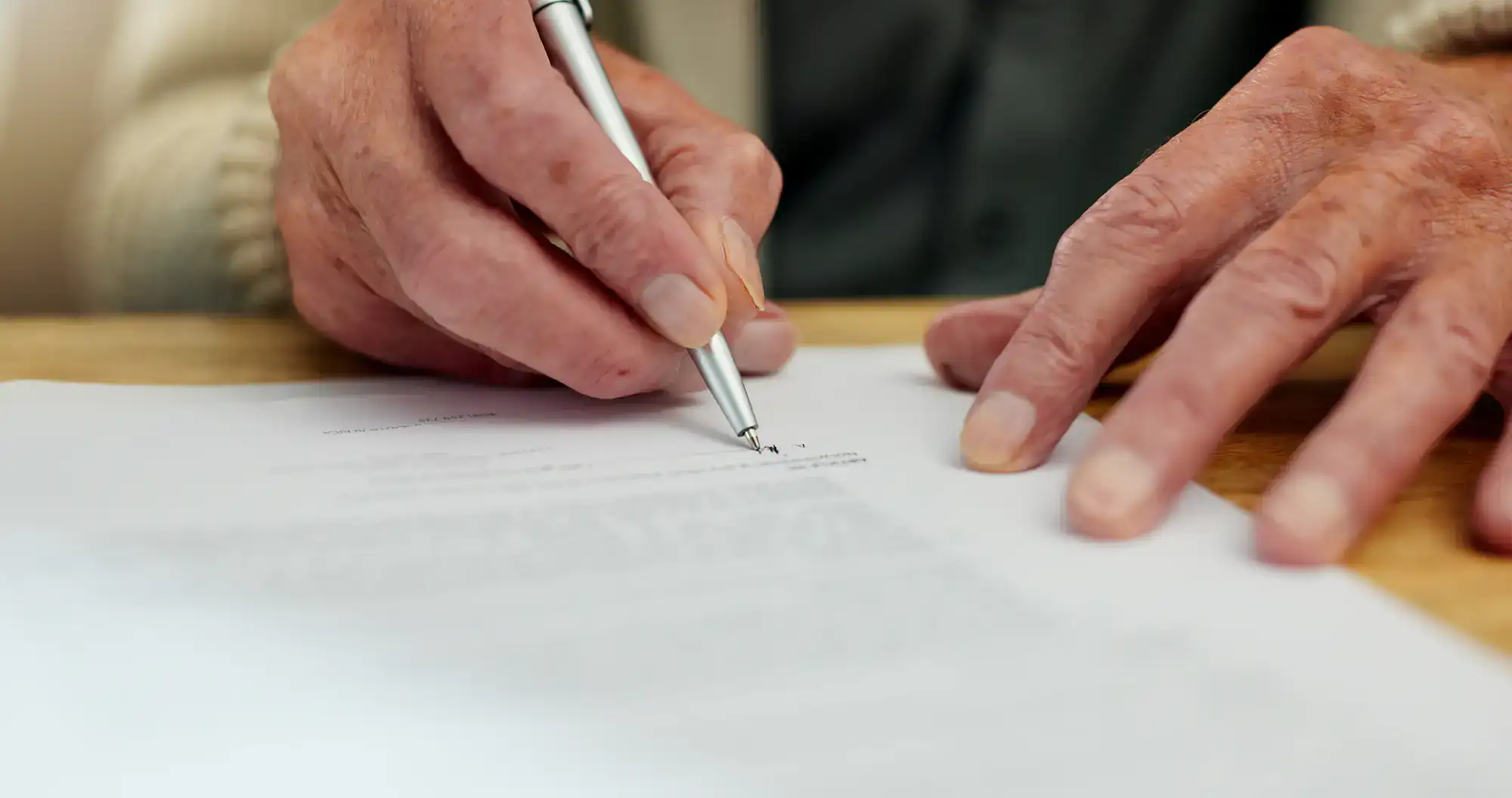Wills Attorney in Hicksville, NY
Protect Your Family's Future Today
Don’t let New York’s intestacy laws decide your family’s fate when a properly drafted will can ensure your wishes are honored.


Hicksville Estate Planning Lawyer
Your Legacy, Your Way, Your Peace of Mind
When you have a properly drafted will, you control exactly who inherits your assets, who cares for your children, and who manages your estate. No court-appointed strangers making decisions about your life’s work. Your family won’t spend months or years fighting over your wishes in probate court. They won’t watch distant relatives you barely knew walk away with assets you intended for your children or favorite charities. Instead, they’ll have clear, legally binding instructions that eliminate confusion and conflict. Your executor – someone you chose and trust – will handle everything according to your specific wishes, not some generic state formula that has nothing to do with your values or relationships.
Skilled Hicksville Wills Lawyers
Local Knowledge, Personal Attention, Proven Results
We have been serving Long Island families for years, with deep understanding of Nassau County’s unique estate planning landscape. We know the local considerations that affect Hicksville residents – from property values to family dynamics. Our team takes time to understand your specific situation, not rush you through a cookie-cutter process. We offer consultations at our office, by phone, video conference, or even in your home if you’re homebound. We speak your language – literally. Our bilingual services in Spanish and Italian ensure every family member understands their options and feels comfortable with the process.

Will Drafting Process Hicksville
Simple Process, Comprehensive Protection
First, we sit down and discuss your family situation, assets, and goals. We’ll ask about your children, your concerns, and what matters most to you about your legacy. Next, we explain your options in plain English. No legal jargon or pressure tactics – just clear information about what different approaches mean for your specific situation. Then we draft your will and related documents, making sure everything reflects your wishes precisely. We’ll review everything with you before you sign, answering any questions that come up. Finally, we make sure you understand how to store and update your documents. We’ll also remind you when it’s time to review your will after major life changes.

Ready to get started?
Comprehensive Will Services Hicksville
More Than Just Wills
Your will is the foundation, but complete protection requires more. We help you designate guardians for minor children, choose executors who understand your values, and structure your estate to minimize taxes and complications. For Hicksville families, we understand the local considerations that matter. Nassau County property values, local business interests, and family dynamics all influence how we structure your estate plan. We also prepare powers of attorney and healthcare directives, ensuring someone you trust can make decisions if you become incapacitated. These documents work together with your will to provide comprehensive protection for every situation.

What happens if I die without a will in New York?
If you die without a will in New York, you’re considered “intestate” and the state decides who gets your assets. Your surviving spouse gets the first $50,000, then the remainder is split between your spouse and children. This often doesn’t match what people actually want. Your favorite charity gets nothing. Close friends who aren’t blood relatives get nothing. The court appoints an administrator who may not understand your values or family dynamics. The process typically takes over a year, costs more money, and creates more stress for your family. About 60% of Americans don’t have wills, but the consequences of intestacy make it one of the most important documents you’ll ever create.
How often should I update my will?
You should review your will every 3-5 years and update it after any major life event. Marriage, divorce, birth of children or grandchildren, significant changes in assets, or moving to a new state all trigger the need for updates. Changes in your relationships matter too. If you no longer trust your chosen executor, or if beneficiaries’ circumstances change significantly, your will should reflect these new realities. New York law changes occasionally, and tax laws definitely change. What made sense five years ago might not provide the same benefits today. Regular reviews ensure your will continues to serve your family’s best interests.
Can I write my own will in New York?
Yes, you can write your own will in New York, but it’s risky. DIY wills often contain errors that make them invalid or create unintended consequences. Simple mistakes in language can lead to expensive court battles later. New York has specific requirements for valid wills – they must be signed in front of two witnesses who also sign the document. The witnesses can’t be beneficiaries. If you want to make the probate process faster, the will should be notarized to make it “self-proving.” Most importantly, you need “testamentary capacity” – you must understand what you’re doing, know the nature of your assets, and be aware of your family members. An attorney ensures your will meets all legal requirements and actually accomplishes your goals.
What's the difference between a will and a trust?
A will takes effect after you die and must go through probate court. It’s public record, and the court oversees the distribution of your assets. A trust can take effect immediately and often avoids probate entirely. Trusts offer more control and privacy. You can set conditions on when and how beneficiaries receive assets. For example, you might specify that children inherit at age 25, or that funds are used only for education or healthcare. For many Hicksville families, a combination works most favorably. A will handles personal items and guardianship designations, while a trust manages larger assets and provides ongoing financial management. The right approach depends on your specific situation and goals.
How do I choose an executor for my will?
Choose someone you trust completely who has good organizational skills and the time to handle estate administration. This person will manage your assets, pay debts and taxes, and distribute inheritances according to your will. Consider their age, health, and location. An executor who lives far away or has health problems might struggle with the responsibilities. They should also be comfortable dealing with financial matters and potential family conflicts. You can name a family member, close friend, or professional like an attorney or bank. Many people choose a primary executor and an alternate in case the first person can’t serve. The most important factor is trustworthiness – this person will have significant control over your estate.
What assets are not covered by my will?
Assets with named beneficiaries pass directly to those beneficiaries, bypassing your will entirely. This includes life insurance policies, retirement accounts like 401(k)s and IRAs, and bank accounts with “payable on death” designations. Property owned jointly with rights of survivorship automatically goes to the surviving owner. This is common with married couples who own their home together. These assets can be advantages because they avoid probate, but they can also create problems if your beneficiary designations don’t match your overall estate plan. We review all your assets – not just those covered by your will – to ensure everything works together according to your wishes.
